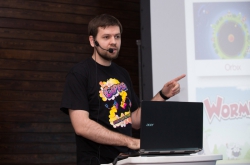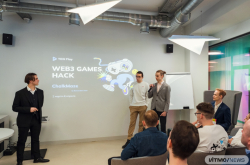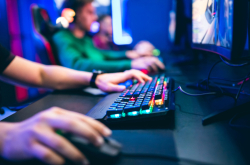We can safely say that anyone who was lucky enough to delve into the world of computer games in their childhood, had at one point in their lives wondered how to create a wonderful virtual world of their own. Distant planets in need of saving from invaders, battles for the right to rule a fantastic kingdom, all the adrenaline of racing simulators with their video quality much better than anything to be seen on TV. All of this and much more is created by a great team of professionals – programmers, game developers, script writers, AI and machine learning specialists.
Over the decades of their development, videogames have grown into their own industry separate from the one of IT. Russia has been an active manufacturer in this industry, having given the world many popular games, from Tetris to Heroes of Might and Magic V and War Thunder. Nevertheless, opportunities to professionally study gamedev in our country are still relatively hard to find. Meanwhile, to create a lifelike world that will startle millions of users, you need a lot of very specific skills that have to do with mathematical simulation, computer graphics technologies and human-computer interaction.
ITMO University’s “Game Development Technologies” Master’s program is tailored to educate specialists who can find out-of-the-box solutions. The first graduates have joined the wide world of game developers with some of them staying at the university to continue their projects.
Andrey Simonov, “Game Development Technologies” graduate
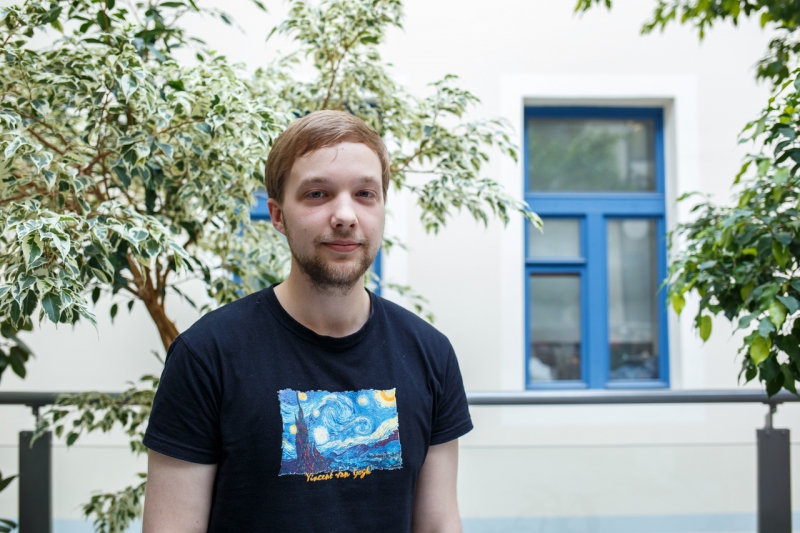
It was a lucky coincidence that I got into this Master’s program because that year I applied to several universities and this program was only a backup till the last minute. It all changed when I was taking the entry exam for the “Game Development Technologies” program and got a question on game engines. It suddenly hit me then that I had to study here. I have been into games since childhood and wanted to get into gamedev when I was still a Bachelor’s student.
I decided to stay at ITMO University’s Laboratory of Interactive Visualization after graduation. A lot of what I do these days has to do with game engines, for example, Unreal Engine 4. It was thanks to this Master’s program that I learned to work with it. I am currently collaborating on augmented reality projects for TV shows and creating visuals and models on Unreal Engine 4. I don’t really want to land a job at a big developer company. Games are something personal for me, so I would like to join a small group of like-minded people and create games with them.
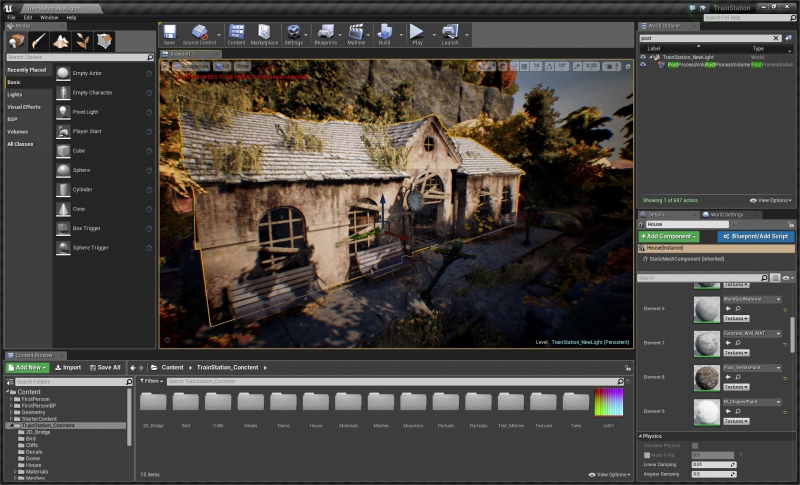
The most memorable course for me was the one on computer graphics. We got to learn a lot and it was absolutely brain-wracking, but also very interesting. I feel the benefits of everything we learned on that course now when it helps me understand new technologies, speeding up my work, as I know what lies in their core. During my studies I was working on a course project with a small team of students. It was a virtual reality Tower-Defence game. You had to fly like the Iron Man and create defence towers to resist the evil robots’ attacks. We kept developing it even after we’d handed the project in and even demonstrated it on VK Fest and Science Fest 2018. Apart from that I developed a card strategy computer game that was recognized by Wargaming Academy. It was great to work in a big team creating a cool game together.
Developing a game is a peculiar process uniting people from different fields: programmers, artists, game designers, composers and marketing specialists cooperate to create the final product. Such atmosphere allows you to grow in many areas and that is exactly how it is different from other kinds of programming. You cannot just be a programmer in gamedev! You will always need to know a little about modeling and scriptwriting, and you will even have to write your own little musical pieces.
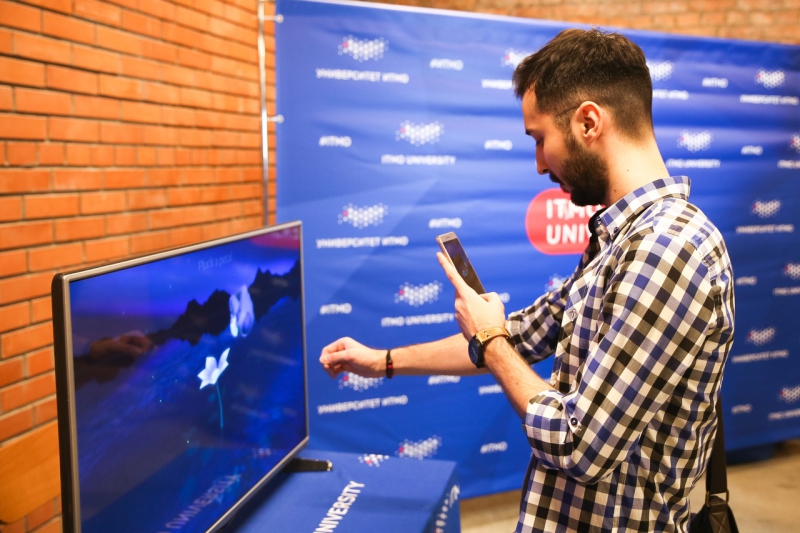
Aleksandr Gutritz, “Game Development Technologies” graduate
After receiving my Bachelor’s degree, I was looking for a Master’s program that would actually be interesting and stumbled upon the “Game Development Technologies” program at ITMO University. Never before had I seen something like that, so I was rather surprised. There wasn’t much information available back then, it was the first intake, but I decided to try. I’ve always loved videogames and more than that I’ve always wanted to create something myself – that is how I learned about level editors, game mods and game engines.
In my opinion, it is hard to learn something radically new when you are a Master’s student, so you just expand your professional knowledge. I did become more confident during the program, though, which enabled me to pick up new technologies and approaches. The best part for me were opportunities to meet gamedev professionals and even have some of them teach our courses. It was entertaining to visit the 4C: St. Petersburg conference. It took place in the beginning of our studies, so it was a startling experience to be at an international game developer conference. Back then all of those people and companies seemed to be unreachable, but there they were ready and happy to talk about their work and answer questions from the audience. It made me realize how open the industry actually is.
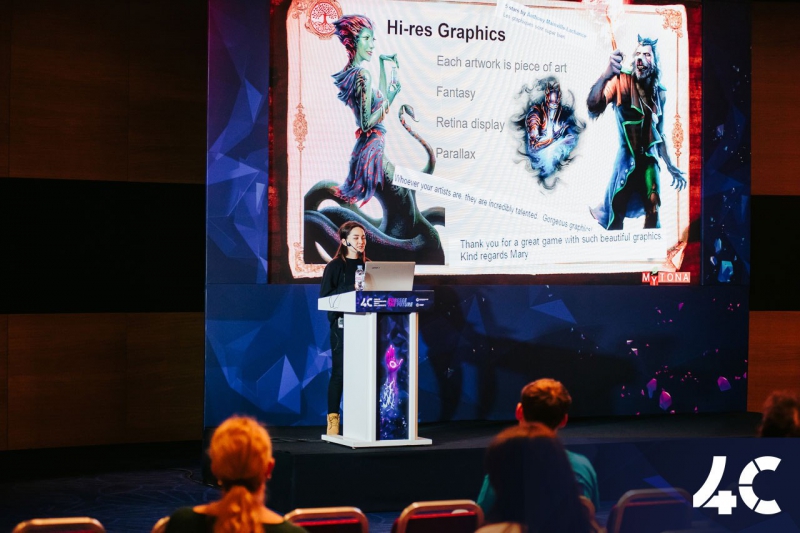
I have yet to work on a finished and commercially successful project. I’ve only developed some projects for personal use and took part in student projects. There is not much different here from a programmer’s point of view, although there are not so many popular solutions and patterns, and information about them is hard to find. You often have to think of something unconventional to resolve every issue effectively.
Currently I am developing mobile apps on my own and also collaborate with ITMO University’s Laboratory of Interactive Visualization. I don’t think it sensible to dream about landing a job somewhere, I don’t really see myself getting into corporate culture right now. It just so happens that I am working more with mobile platforms, including VR/AR, and that’s where my interest lies regardless of the genre.
Alexander Khoroshavin, ITMO University lecturer
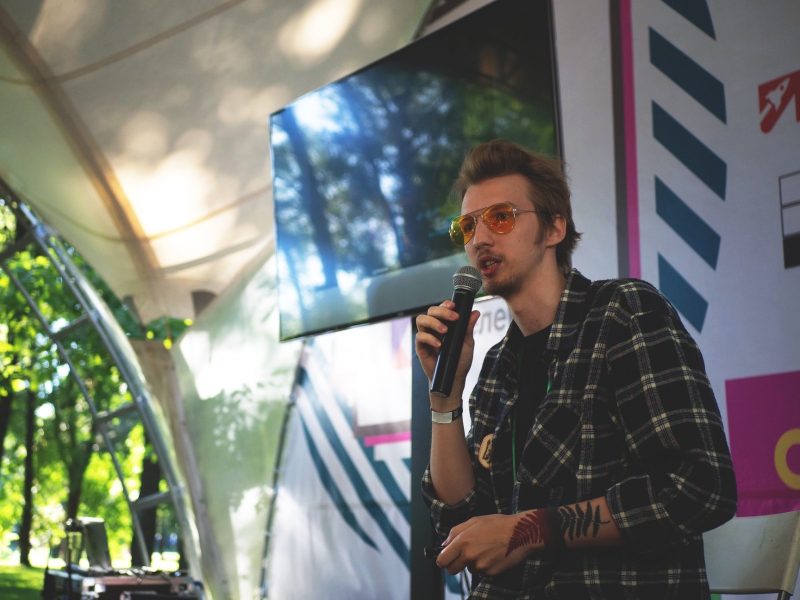
Our program, naturally, focuses on game development. It is its main special feature. In two years, our students learn both the technical (computer graphics, game engine architecture etc.) and psychological (game design, level design) aspects of this process. Every main discipline ends with a course project, i.e. a game created by students. Thus, they can create their portfolio during these two years to then find a position in the industry.
I think that nowadays, the most important thing for students is their passion and motivation. It is especially so in gamedev, because a game is a creation, it’s a complicated mix of technical, artistic and psychological knowledge of its developer. I believe it impossible to teach someone how to create games, you can only learn it yourself. That’s why in my classes I try to find a way to motivate my students, subtly push them into the direction where they will find their own developer style to generate unique good-quality projects.
These days we are establishing contacts with people from the industry, gamedev companies. In the future, I hope to present our students with a group of partner companies to choose from if they want to do an internship, conduct research or find a job.



